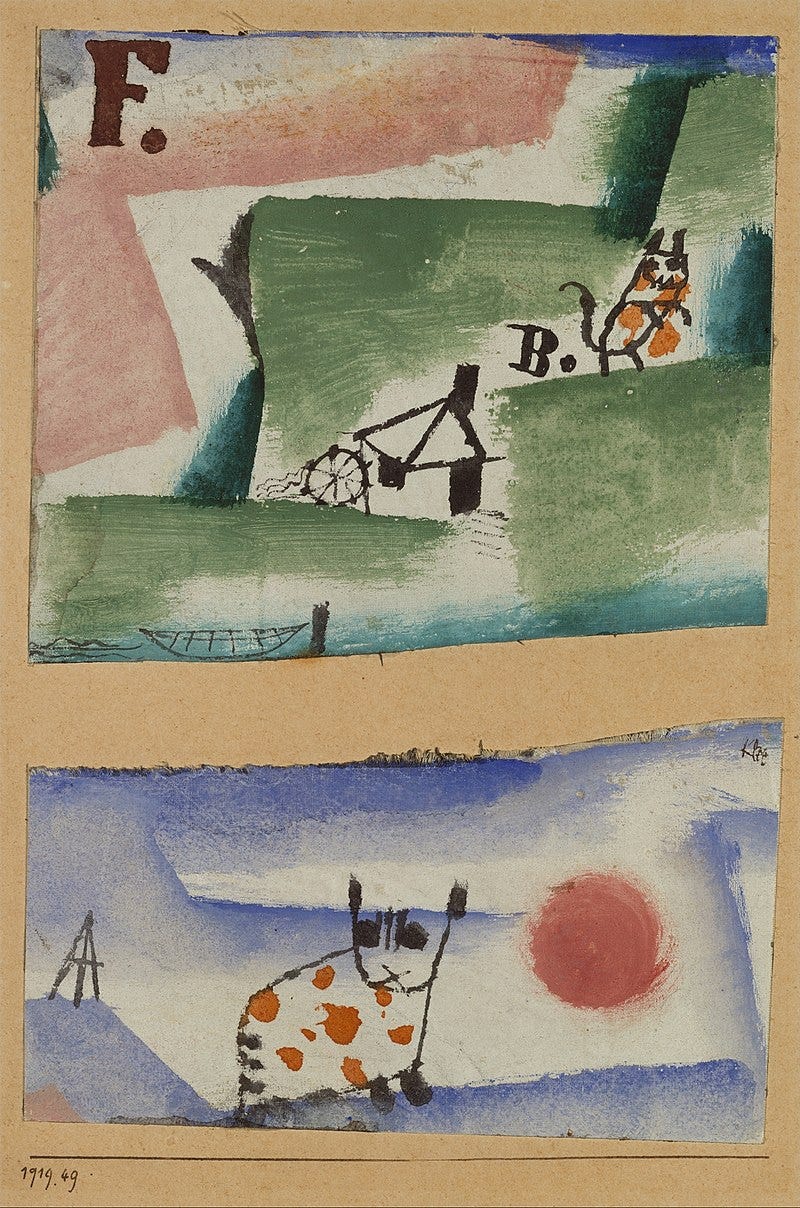Three Poems by Paul Klee
Despite his massive influence on literature and philosophy, the poetry of Swiss painter Paul Klee (1874-1940) is relatively unknown compared to his visual art, even in the German speaking world. This not because of any defect in the poetry; he simply never wrote for publication, at least not during his lifetime. His poems were discovered posthumously, in a series of notebooks and diaries. As their medium suggests, many of them are somewhat rough or fragmentary, “materia poetica” for his own private use. Nevertheless, Klee’s poetry was acclaimed upon its eventual release, with one eminent critic ranking him among the best German-language poets of the 1930s and 1940s (not the highest distinction given the circumstances, but still). Here I’ve chosen two poems translated by Anselm Hollo, taken from an out of print collection published in the 1960s, as well as one rough translation of my own. As far as I know, the last piece has not been rendered into English until now.
The Happy One The happy one, who is almost an idiot, everything blossoms, bears fruit for him. He stands on his little acre, one hand holding a watering-pot, the other pointing at himself, at the navel of this world. Verdure and blossom, boughs heavy with fruit bend down, above him. The Two Mountains A reign of light clarity on two mountains : the mountain of animals the mountain of gods. But between them the dusky valley of men. When sometimes, one of them looks up he is gripped by foreboding by unquenchable longings, he who knows he knows not, longing for them who know not they know not and for them who know that they know. Chapter 3 From the heart centered one request tendered while footsteps are fading a little something of the cat: her ear spoons sound her feet take flight her gaze a charm irresistible burns thin and thick beautiful as blooms and well-armed also but really has nothing to do with us


